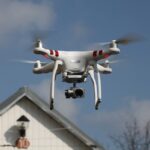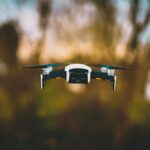Drones have become increasingly popular in recent years for both recreational and commercial use. However, as the technology continues to advance, regulations and laws regarding drone usage have also become more stringent. Navigating drone laws can be confusing and overwhelming, but it is crucial to ensure compliance in order to prevent accidents and legal issues. Here are some important tips for complying with drone laws and ensuring safety while operating a drone.
First and foremost, it is important to familiarize yourself with the laws and regulations that apply to drones in your area. Laws regarding drone usage can vary from country to country and even within different states or provinces. In the United States, for example, the Federal Aviation Administration (FAA) regulates drone usage and requires all operators to register their drones with the agency. Additionally, there are restrictions on where drones can be flown, how high they can go, and how close they can be to airports or other restricted areas. It is essential to be aware of these regulations in order to avoid violations and potential fines.
One of the most important rules for drone operators to follow is to always fly within line of sight. This means that you should be able to see your drone at all times while flying it, without the use of binoculars or other devices. Flying beyond line of sight not only increases the risk of accidents or collisions, but it is also a violation of FAA regulations. Additionally, it is important to avoid flying near airports, military bases, or other restricted areas, as this can pose a serious safety risk and lead to legal consequences.
Another important tip for compliance and safety is to always obtain the necessary permits or permissions before flying your drone in certain locations. For commercial drone operators, this may include obtaining a Part 107 certification from the FAA, which is required for anyone using a drone for business purposes. Additionally, if you plan to fly your drone in national parks or other protected areas, you may need to obtain special permits or permissions from the relevant authorities.
In addition to following the laws and regulations, it is also important to practice safe flying habits and exercise caution while operating a drone. This includes avoiding flying in inclement weather conditions, flying at a safe distance from people and property, and maintaining proper control of the drone at all times. It is also important to regularly inspect and maintain your drone to ensure that it is in good working condition and safe to fly.
By following these tips for compliance and safety, drone operators can enjoy their hobby or business while minimizing the risk of accidents, legal issues, and fines. It is important to stay informed about the latest regulations and guidelines regarding drone usage, as the laws continue to evolve with advancements in technology. Ultimately, compliance with drone laws is essential for ensuring the safety of yourself and others while operating a drone.





